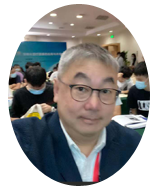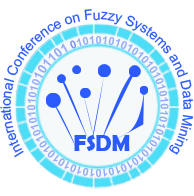Keynote Speaker

Dr. Simon James Fong, Associate Professor
Computer and Information Science Department, University of Macau, ChinaSpeech Title: Optimized Machine Learning for Critical Industrial Applications
Abstract: With the rapid development of industrial technology and intelligent information technology, the processing of big data by artificial intelligence (AI) enables industrial production to reach a higher level of automation. This is because AI has the ability of learning and identifying manufacturing defects using machine learning. It can control, monitor, and predict the state of the manufacturing equipment through the production data it has obtained, and it can achieve self-learning by establishing a neural network. On this basis, industrial production can rely on AI to achieve advanced intelligent requirements. As a branch of computer science and technology, the buzzword AI is actually rebranded from traditional machine learning techniques. But in industrial applications, especially for critical applications, the demand for precision and performance of AI is extremely high. Any mistake made by the AI means life and death.
Machine Learning (ML) has been around for decades, empowering many AI applications from computer vision to bioinformatics. Recently Deep Learning gained a remarkable popularity as a branch of ML, by its power to progressively extract higher-level features from the raw input through multiple "deep" layers. Convolutional Neural Network (CNN) is such a flagship model of DL that has unprecedented influential innovations in the field of computer vision and object recognition. While CNN has shown its power in many real-life case studies and successful deployment, recently much attentions of computer scientists are focused on how to build a best CNN for a given task with the best performance [1]. In this talk, I will describe holistic methodology called Optimized Learning (OL) which is designed to uplift the performance of DL, from augmenting the input data, to the CNN optimization and corrective output learning. The context of optimization in OL here is different from traditional optimization algorithms. ML usually acts indirectly in terms of enhancing the prediction performance. It is supposed that optimization in OL needs to be done at several levels and at different places of a ML model. This endeavor aims at leveraging a better ML/DL model for better outcomes, especially in critical applications where the best possible accuracy matters. Some prior works have already been done and applied in industries [2]. Some demos in real commercial AI projects will be shown, with a highlight of the importance of researching for enhanced ML/DL algorithms to better solve industrial problems.
References:
[1] Latest Journal Papers about artificial intelligence in industrial applications:
https://www.sciencedirect.com/journal/computers-and-electrical-engineering/special-issue/10H6P2R11TZ
[2] Examples of AI in actions as industrial solutions
https://www.opencv.ai/#solutions
Biography: Simon Fong graduated from La Trobe University, Australia, with a 1st Class Honours BEng. Computer Systems degree and a PhD. Computer Science degree in 1993 and 1998 respectively. Simon is now working as an Associate Professor at the Computer and Information Science Department of the University of Macau. He is a co-founder of the Data Analytics and Collaborative Computing Research Group in the Faculty of Science and Technology. Prior to his academic career, Simon took up various managerial and technical posts, such as systems engineer, IT consultant and e-commerce director in Australia and Asia. Dr. Fong has published over 500 international conference and peer-reviewed journal papers, mostly in the areas of data mining, data stream mining, big data analytics, meta-heuristics optimization algorithms, and their applications. He serves as editors at various special issues of SCIE-indexed journals. Simon is also an active researcher with leading positions such as Vice-chair of IEEE Computational Intelligence Society (CIS) Task Force on "Business Intelligence & Knowledge Management", and Vice-director of International Consortium for Optimization and Modelling in Science and Industry (iCOMSI).
Research Interests: data mining, data stream mining, big data analytics, meta-heuristics optimization algorithms, and their applications
